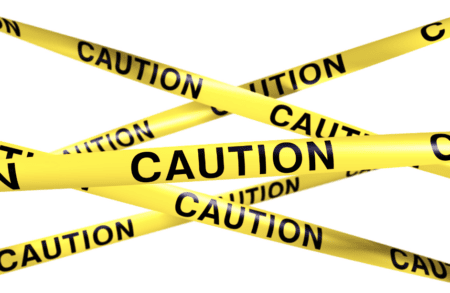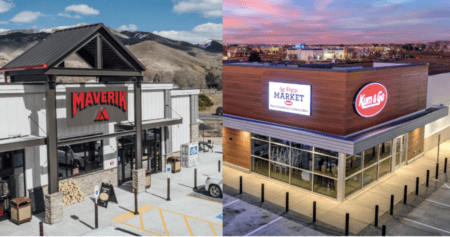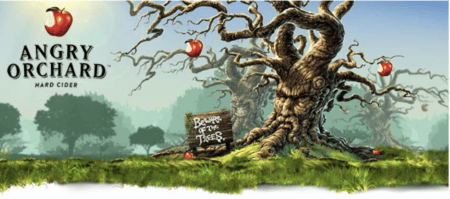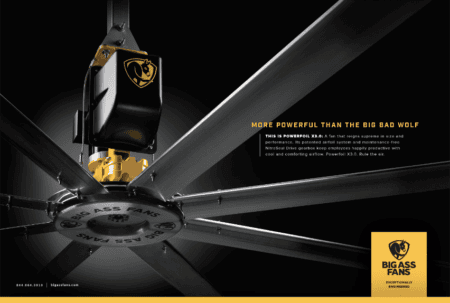Naughty Naming: Words Not Allowed In Your Business Name
Key Focus Points:
-
Avoid names that get lost in translation, may be offensive, or get you into legal trouble.
-
Embrace edgy name styles, but conduct a risk assessment first!
-
Consensus among key decision-makers typically results in a boring and safe name.

Why Business Name Restrictions?
It can be extremely difficult to find a name that’s catchy, engages the target audience, and is legally viable. Your list of favorite business name ideas can be whittled down to zero in just a few clicks through the USPTO database.
Just like you must learn the rules of a new sport, a successful business name starts with understanding the risks, rules, legalities, and business name restrictions in brand naming.
By knowing prohibited words and risks to avoid, you can ensure that your new business name stays off the naughty list and becomes a huge success!

Tips to Avoid a Naughty Business Name
Don’t Get Lost in Translation
Finding a successful brand or business name in one geographic area doesn’t guarantee success in another one.
- Take the Chevrolet Nova for instance. Nova translates to No go in Spanish- not a great association for a vehicle!
- Remember the Rolls-Royce Silver Mist? It means manure in German.
- Another notable mishap occurred when Coca-Cola entered the Chinese market; its brand name phonetically translated to something resembling bite the wax tadpole. That’s a head-scratcher.
- Ford came out with the Ford Pinto, but when it was launched in Brazil it sounded an awful lot like male genitalia.
- Even the beloved Big Mac had its issues when introduced in Canada- would you like to order a “big breast”?
These lessons from the limelight highlight the crucial need for both linguistic and cultural vetting in the brand naming process to ensure your name’s availability doesn’t get lost in translation.

Avoid Words with Legal Implications
Depending on your state or location, certain words can only be used in your business name if you have the credentials to support it. Let’s look at some examples of business name restrictions.
- University or College: In many states, the words “college” and “university” must align with a documented accreditation to be used in your organization or business name.
- Bank, Credit Union, Trust, Accountant, & Insurance Company: Many banking or finance-related terms cannot be used in your business name unless you’re a legitimate banking company or financial institution. You cannot use a name like “Smith Insurance Company” unless legally authorized to operate as such by the appropriate government agency.
- Commission, Department, Bureau, Municipal: Words that relate to a government entity or unit cannot be used in your business name to avoid confusion.
- Corporation, Association, LLC (Limited Liability Company): These terms are legal identities that require legal documentation. Be wary of certain business entity identifiers such as these.
- Doctor or Attorney: Titles that require professional licensing are not allowed in business names (unless you have the credentials!) to ensure they do not mislead potential customers.
These are just a few examples of words that are potentially prohibited from use in your brand name and it’s important to check with your state naming laws and guidelines for a complete list of restricted or prohibited words not allowed in your business name.

Exceptions to the Rule
Let’s consider a hypothetical loophole. A popular new occupation is an AI prompt engineer. Let’s say you’re an AI prompt engineer, you’re pretty good at it, and you’ve got some buddies who are too and your desired name is “The Smart AI Prompt Engineers”. Can you do that?
You actually can. Why? Because there’s no certification right now for an AI prompt engineer, and you’re using “engineers” as a descriptive term.
But what you probably couldn’t do is call yourselves “The Smart AI Mechanical Engineers” unless you have a true mechanical engineer on your staff. Why?
Because a mechanical engineer has a professional certification and license, and in many states, you can not use that term in your company name unless you are a licensed engineer as the term implies professional licensing or working with a professional engineer.
With all of the legal nuances, it’s important to get the help of a trademark attorney to help you sort through state & federal laws, conduct a free business thorough trademark search and guide you to a legally viable name!
Key Takeaway: Be wary of all those words that are out there that might cause you to bump into some legal issues at the federal level or the state level.
Avoid Obscene and Vulgar Meanings
It may be obvious that you should avoid obscenities, vulgarities, and off-putting words in your business domain names anyway, but it’s still a lesson that many businesses are learning the hard way.
The large convenience store & gas station chain Kum & Go is in the process of changing its name due to some obvious negative connotations. The name will be exchanged for a name they already hold for another chain of stores, Maverik. Kum & Go was supposed to be a play-off of the phrase “come and go” but the spelling was altered to reflect the founders Krause and Gentle.

The hit comedy franchise Jackass was a huge fan of the The Kum & Go merchandise. Johnny Knoxville has been seen wearing a Kum & Go T-shirt with the slogan “We go all out!”.
This exposure resulted in temporary skyrocketing sales for Kum & Go merchandise, but in the end, created a greater barrier to expansion and growth for the convenience store franchise.
Key Takeaway: Avoid words or phrases that may be controversial, off-putting or offensive
The Sweet Spot in Business Naming
While avoiding controversy and negative connotations is important in naming, you don’t want to mitigate risk so much that you come up with a name that’s boring and too safe. Just like most things in life, balance is key. So what’s the sweet spot when it comes to brainstorming business names and avoiding prohibited words?
Embrace Edginess
Sometimes the best names are a little edgy and attention-grabbing. Brand names that create a buzz are worth consideration because they stand out and get people talking. You don’t want to pick a name that is too safe, forgettable, and doesn’t generate conversation. It doesn’t mean you should pick a name that upsets your audience, but choosing a name that’s a little daring usually works better than something very straightforward and quiet.
A Case Study: Boston Beer Company
Take Angry Orchard hard cider, for example. The best apples for making cider aren’t the pretty ones you see at the store; they’re tougher and look almost angry. These apples make a cider that’s sharper and more flavorful.
“Angry Orchard” reflects the hard and spiked component and the bold and energetic flavor compared to the usual, sweeter ciders. This name helped Angry Orchard become the most popular hard cider in the U.S. because it stands out and shows off its unique character.

With Great Risk Comes Great Reward
What about something even edgier, like Big Ass Fans? Big Ass Fans was able to register its name as a federal trademark even though trademark law says you cannot register an obscenity or a vulgarity as a trademark. So how’d they do that?
Well, the word “ass” is actually in the dictionary as the name for a donkey, as in a jackass. It was an accepted term already in the dictionary and they were able to argue that it was a descriptor for a big fan and not used in any vulgar or offensive way.
They also used Big Ass Fans in commerce for a while before they tried to register it. By doing that, they established what attorneys call “secondary meaning” and could show that customers adopted the name in the marketplace without any problems or pushback with the name.
When they finally filed their trademark registration, no one objected. With legal guidance, they were able to go through the back door and get that name registered as a federal trademark.
Key Takeaway: Embrace an edgier name that makes the right kind of impression

Consensus is Not King
When it comes to naming your brand, don’t aim for everyone to agree. If you have more than a few people making the decision, it’s really hard to get everyone on the same page and excited about a name.
Even if you can get everyone in agreement, chances are they agreed on a safe, unexciting name. A name that some people are opposed to can actually be indicative of a name that’s more interesting and engaging.

An Example from History
Look at Google compared to InfoSeek. Most people don’t remember InfoSeek anymore. It was an early search engine, just like Google, but it didn’t last. Its name was easy to understand and probably didn’t cause any disagreements, which might be why it didn’t stick around.
Google, on the other hand, probably had people divided, but it ended up being a name that the whole world knows and engages with.
Key Takeaway: Consensus is not the goal. A name that everyone agrees with is likely a name that nobody will remember.
A few main points to remember when naming your business:
- Find that sweet spot where it’s a little edgy, it’s fun, and it raises a few eyebrows in a playful and positive way.
- Avoid straight-laced and buttoned-down names that nobody wants to talk about or remember.
- Choose a name that generates conversation because of its wit and humor, not because of its off-putting, offensive meaning.
- Avoid terms and words that require credentials, special licensing, accreditation, certifications, or words that could be confused with governmental entities.
- Measure & mitigate the risk you’re willing to take. Sometimes, it pays off!
NameStorm With Us
Helping your name stay off the naughty list is why we’ve been perfecting our business naming process for almost 40 years. At NameStormers, we work with you to find the perfect name that captures your business culture, values, and strengths in addition to extensive preliminary trademark and domain screening.
Our capabilities include business naming, product naming, naming strategy, legal and market research, and naming architecture. Contact us to see how a qualified professional can help you make a lasting first impression with a great name.
Transcription:
Mike Carr (00:01):
Naughty naming. That’s what we’re going to talk about today. Sounds a little titillating, a little exciting. Well, the original tag, the original descriptor for this session was not nearly as exciting. It was words not allow, not allowed in a business name. Words not allowed in a business name.
That sounds like a real barn burner, right? But naughty naming a little interesting. So let’s talk a little bit about what you mean by that. Naughty can mean
(00:32):
Just silly or ridiculous, or you really blew it like the Chevrolet Nova. Nova
In Spanish meant
(00:38):
No-go. Why would you name a car? No-go big fo pa
Rolls-Royce came out with another manufactured car. Silver Mist Mist in German manure. Oh, you got toBe kidding me.
(00:52):
Coca-Cola, when they first went to China, the Mandarin phonetic translation sounded an awful lot like tadpoles and wax. Something like that. Boy, that’s refreshing. I’m going to get a Coke and drink some tadpoles and wax today. Don’t think so. And then we really do move into the naughty, the Pinto, the Ford Pinto name Pinto in Brazil sounds an awful lot like male genitalia. Ooh, you don’t want to go there. Or Big Mac, the McDonald’s Big Mac hamburger in Canada was slang for big breast. Again, not a direction that you want to go. So you need to be very careful about obscenities and vulgarities and translations in another language that just is going to rub folks the wrong way. And that’s probably pretty obvious. But what else should you watch out for? There are certain words that have a legal definition that you really can’t use in your name, like trust we’ve talked about before, building trust in your brand, building trust in your company.
(01:57):
Well, maybe you want to think, well, let’s put trust in the name. Well, you can’t do that. Not because you want to do that anyway, but trust has a legal definition, right? And so unless you are truly a financial trust and fit that definition, it wouldn’t make any sense. There are other names like that, like a university or a college. Maybe you’ve got a group of folks that are incredible artists and you want to teach art to all kinds of people, and then you’ll call yourselves the National American Art University. Well, university in a lot of states has to be an accredited institution. You have to meet certain standards to be able to use that in your name. And there are a whole slew of names like that in the financial space. Banks and credit unions in the medical space doctor and some of the medical degrees, and even in the engineering space.
(02:45):
Let’s talk about AI and engineers because one of the popular new occupations is an AI prompt engineer. And so you’re pretty good at that, and you’ve got some buddies that are too. And you want to call yourselves the smart AI prompt engineers. That’s your company name. Can you do that? You actually can. No, you actually can. Why? Because there’s no certification right now for a AI prompt engineer, and you’re using engineers as a descriptive term. But what you probably couldn’t do is call yourselves the smart AI mechanical engineers, unless you have a mechanical engineer or several on your staff. Why? Because a mechanical engineer is something that has a professional certification and license associated with it. And in a lot of states, you could not use that term in your company name unless you actually had that certification. So just be wary of all those words that are out there that might cause you to bump into some legal issues or legal problems at the federal level or at the state level.
(03:52):
But you can push the edge. So how naughty do you want to be? Do you want to be as naughty as big ass fans or big ass fans? Are you kidding me? Guess what? They were able to register that name as a federal trademark, even though trademark law says you cannot register an obscenity or a vulgarity as a trademark. So how’d they do that? Well, it was an interesting case Ass is actually in the dictionary as the name for a donkey as in jackass. So it was an accepted term already in the dictionary. Big ass they argued was used as a descriptor just for a big fan. It wasn’t used in any vulgar or offensive way. It was just a descriptor for a big, big fan. They also used that name in commerce for a while before they tried to register it. And they established what attorneys call secondary meaning they could show that customers adopted the name and the marketplace didn’t really have any problems or confusion or pushback with the name big ass fans.
(04:55):
And then finally, when they did file their trademark registration, no one objected. So they were able to sort of go through the back door and get that name registered as a federal trademark. But that was sort of like right on the edge. So how on the edge do you want to go? And you may say, Hey, I know my target. I know my tribe. I know my audience. I know my followers and edgy is okay with them. They’re even okay with something that’s a little bit profane or offensive. Mom and dad wouldn’t have been, but my tribe, my people, my customers, my followers, my audience. They’re fine with that. So here’s what we advise our clients, and this probably is going to make sense to you, but I think it’s just super important. Things that are edgy in a fun, humorous, positive way are great, right?
(05:43):
They make you smile. They might raise a few eyebrows, but more from a chuckle standpoint than, oh my gosh, names that could be viewed as disparaging or offensive or obscene or vulgar. Why the risk? Not just from a legal perspective. You might not be able to register the name because there might be a constituency out there that really pushes back. And before you know it, you’re canceled on social media and everything else. It’s just not worth it. So I have an example, name, a million dollar name that I’ve come up with, and I have tried to sell clients for years, and it’s just brilliant and I’m going to give it to you right now for free. It’s all about speed. So we do a lot of work for the chip manufacturers, the chips that are like in your smartphone, your Samsung phone, your iPhone, your Samsung watch, your Mac computer, maybe even your car.
(06:32):
Every time they come out with a new set of chips, they got to be faster, especially with AI and all the video processing and everything. Speed is what it’s all about. Baby speed, speed, speed. Here is the name. Little edgy, little controversial, but it’s scream speed. Are you ready for what? Streaker. Streaker, baby. That’s it. Brilliant. Two syllables. Easy to say, easy to spell, and conjuress up speed. Million dollar name to you right now for free. Maybe not so brilliant. Why not? Well, in doing research, which we do a lot of streak or for some folks is really dated. Like that’s what my mom and dad used to do, maybe, or at least talked about. But my generation not so cool. Or if you’re a chip manufacturer, do I really want my new hot, cool line of graphic processing chips to be associated with a bunch of folks running around on a soccer field naked, or a baseball field, or football field, whatever it might be.
(07:36):
So maybe streaker isn’t as brilliant as I thought it was, but going forward, the advice that we have for you is avoid the boring. Avoid the familiar, avoid the safe. Because the safe is just a yawner. Nobody cares about a safe name, but avoid the too controversial, the names that are offensive to many, and just try to find that sweet spot where it’s a little edgy, it’s fun, it raises a few eyebrows, but in a playful, positive way, it generates some conversation because it is witty, it does have that sense of humor. It’s not so straight laced and buttoned down that nobody wants to talk about it. If you get headed in that direction, we think you’ll be headed in the right direction.



